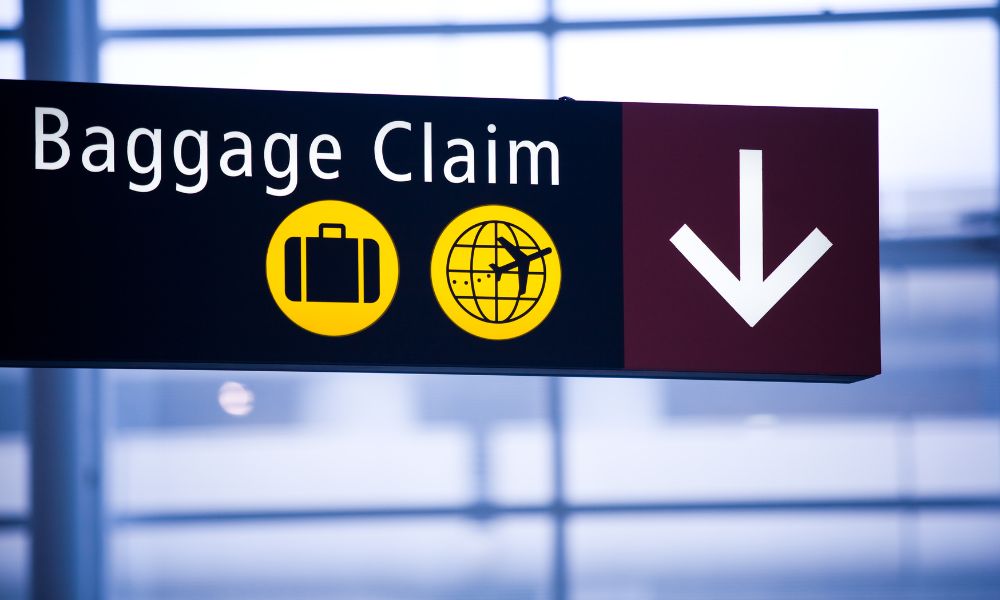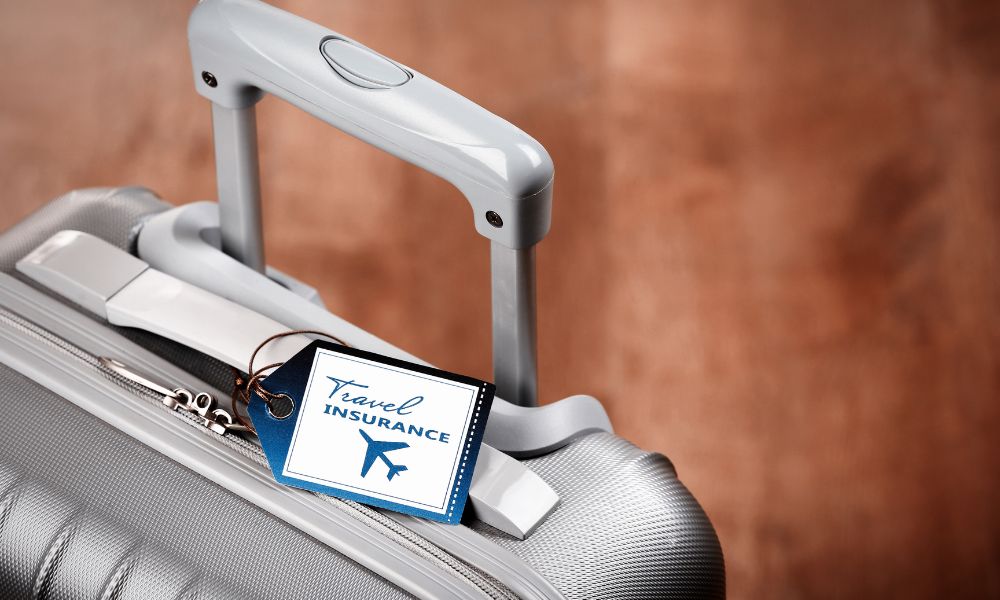Baggage insurance explained
One of the most essential parts of any trip is what you take with you. But when you’re considering what to pack in your luggage, you should also consider what might happen if your baggage is lost, stolen, or damaged during the course of your trip. This is something for which most travel insurance plans should provide coverage.
What is baggage insurance?
Baggage insurance is a general term that refers to a range of travel insurance benefits that your policy may provide. These can include reimbursement or compensation for the following:
- If your baggage and personal effects are damaged in flight, or lost by an airline, or misplaced in a hotel storage facility
- If your baggage is stolen in an act of crime, such as in a hotel or in transit
- If your baggage is delayed or misplaced, requiring you to buy replacement items
Remember, your luggage can be lost, stolen, or damaged not just by airlines during the course of a flight, but also throughout the course of your trip, such as in taxis, on train platforms, in your rental car, in your hotel, or in secure storage. All these scenarios are ones where you want to make sure your travel insurance company covers your losses and provides benefits if something goes wrong.
Coverage for lost or baggage loss is a typical part of many travel insurance policies, but it’s particularly important to ensure you have it if you’re traveling with expensive or valuable items, such as camera equipment or jewelry.
Are you traveling with costly sporting equipment such as golf clubs, scuba gear, hunting or fishing equipment? Some travel insurance policies will cover this gear as part of the baggage coverage.
Traveling always includes a certain amount of risk, and you can limit how much risk you’re taking on by making sure your travel insurance plan has you covered when it comes to your baggage.
What is not covered by baggage insurance?
Keep in mind that there will be some exclusions or limitations associated with a typical baggage policy. This limits what the insurance company has to provide benefits for.
If you leave your baggage unattended, don’t report a case of theft to the police or relevant authorities within a certain timeframe, or you leave cash in your bag that gets stolen, your case may be excluded by your travel insurance policy.
In addition, some policies will have a single-item limit, which will limit the total maximum amount you can be reimbursed for a single item. So be wary of traveling with super high-value items such as engagement rings if you don’t have sufficient insurance to cover them
Another common scenario where baggage coverage can help is if the airline loses your luggage. In that case, the airline or carrier may be responsible, by law, to compensate their passenger for losing a checked bag. However, this may depend on the region and the airline’s policy itself, so it’s worth checking the fine print of your policy and your carrier’s terms. If your airline will only provide partial compensation for the value of items lost, travel insurance can help make up the difference.
If you notice the airline has damaged your bag in transit, you should raise a complaint before you leave the airport. This will increase the likelihood of receiving compensation — either from the airline, or your travel insurance company.

Filing a lost, damaged, or stolen baggage claim
When it comes to making a claim for lost, damaged, or stolen baggage, there are some things that are helpful to know beforehand.
Baggage coverage policies will typically have a deductible, or an amount you have to pay up-front before you are reimbursed for lost luggage or damaged bags.
Check the details of your travel insurance plan before purchase, and when it comes time to file a claim, you’ll have a better idea of what you may be entitled to in terms of value.
It can also be helpful to take photos of your luggage and its contents before your trip, so you have an easier time estimating the loss of value when you ask your travel insurance company to reimburse you.
In the case of delay, if you’re forced to purchase emergency clothes, toiletries, or other essential items while you wait for an airline to deliver your delayed baggage to your destination, your travel insurance coverage may provide benefits. Be sure to keep any and all receipts for purchases you want to be reimbursed for.
In the case of theft resulting in baggage loss, it’s very important to report the incident of crime to the relevant authorities as soon as possible so you can have proper documentation. Having an established record and reference of the crime — usually in the form of a case number or police report — will help enable you to make a successful claim on your policy.
It can be traumatic when your luggage is lost and you have to navigate international authorities you’re not familiar with, but if you want to be reimbursed by your insurance provider, you have to go through this step.
Types of Baggage Insurance Policies
When planning your travel, considering the right type of baggage insurance policy is crucial. Baggage insurance can vary significantly depending on the provider and the specific needs of the traveler. Here are a few common types:
Standalone Baggage Insurance
This policy specifically covers loss, damage, or theft of your personal items while traveling. It’s ideal for travelers who may not need comprehensive travel insurance but want protection for their belongings. Standalone policies may have higher coverage limits for baggage than standard travel insurance plans.
Comprehensive Travel Insurance Plans
These plans typically include baggage insurance along with other coverages like trip cancellation, medical expenses, and emergency evacuation. This option is beneficial for those looking for an all-encompassing safety net. The baggage coverage in comprehensive plans might have different limits and conditions compared to standalone baggage insurance, so it’s important to check the specifics.
Airline-Provided Baggage Policies
Many airlines offer baggage insurance when you purchase your ticket. These policies can cover lost, damaged, or delayed baggage and might be a convenient option if you trust your carrier’s process for handling claims. However, coverage limits may be lower than other types of insurance and typically only apply to the flights booked with that airline.
Pros and Cons:
- Standalone Baggage Insurance offers higher coverage limits and is tailored specifically for your luggage and personal effects. However, it does not provide any other travel-related protections.
- Comprehensive Plans cover a broad array of potential travel issues, including baggage, which makes them more versatile. The downside is that they can be more expensive and may offer less baggage-specific coverage compared to standalone options.
- Airline Policies are convenient and directly tied to your flight; however, they may offer less compensation and require adherence to stricter terms.
Should I insure my luggage?
Nobody wants to face the prospect of lost, damaged, or stolen baggage while they’re on a trip, but it’s certainly not outside the realm of possibility, which is why you should buy travel insurance. Being familiar with the exclusions of your policy before you leave, having a rough idea of how much your luggage and its contents are worth, and knowing the steps to take in the event of an incident will make it more likely your insurance coverage will reimburse you.
Tips for Preventing Baggage Loss and Theft
Losing your belongings or having them stolen while traveling can put a damper on your trip. Here are some tips to help minimize the risk:
- Use TSA-Approved Locks: These locks keep your bags secure while still allowing TSA agents to inspect your luggage if necessary, reducing the chances of damage during manual checks.
- Label Your Luggage Clearly: Ensure your luggage has clear, durable tags with your contact information. Consider using electronic tags or trackers that can help locate your bags if they are lost.
- Utilize Hotel Safes: For valuables or essential documents, use your hotel’s safe whenever available. This reduces the risk of theft from your room.
- Stay Vigilant in Crowded Areas: Airports, train stations, and tourist spots are hotspots for opportunistic theft. Keep your luggage in sight and secure at all times.
- Carry Essential Items in Your Carry-On: Keep important documents, electronics, and a change of clothes in your carry-on. In case your checked luggage is delayed or lost, having these items can be a lifesaver.
- File a Police Report Immediately for Thefts: If your belongings are stolen, contact the local authorities and your travel insurance provider as soon as possible. Having a formal report can expedite the claims process.

How to Choose the Right Baggage Insurance
Choosing the right baggage insurance involves considering several key factors to ensure the policy matches your travel needs effectively. Start by assessing the type of trip you are planning. For example, adventure travels may necessitate policies that cover specialized gear such as climbing equipment or skis.
Next, evaluate the total value of the belongings you plan to take along. This step will help determine the amount of coverage you need. If your items are particularly valuable, like high-end cameras or jewelry, look for a policy that allows you to declare these higher values for appropriate coverage.
Personal preferences and needs also play a crucial role in selecting baggage insurance. If you frequently travel with expensive items or have had luggage issues before, consider opting for a policy with higher coverage limits and lower deductibles.
Conversely, if your travels are generally light with less valuable items, a basic policy might suffice. Always take time to compare different insurance providers and policies. Look at customer reviews, detailed coverage information, exclusions, and the ease of the claims process.
For frequent travelers, consider multi-trip travel insurance plans that include baggage coverage, as they might offer a more cost-effective solution than purchasing separate policies for each trip. By carefully comparing options and aligning the insurance with your specific travel requirements, you can choose the most suitable baggage insurance policy.
Frequently Asked Questions (FAQs)
How do I file a baggage insurance claim?
To file a claim, contact your travel insurance provider as soon as possible. You’ll typically need to fill out a claim form and submit it along with any required documentation. It’s important to report any loss or damage as quickly as possible, preferably before you leave the airport.
What documentation do I need to support my claim?
You’ll need documentation such as original receipts for the items in your baggage, a police report (in case of theft), proof of delay or damage from the carrier, and any photos of damaged items. Keeping a detailed inventory of your packed items can also support your claim.
How long does it typically take to receive reimbursement?
The time it takes to receive reimbursement can vary by insurer and the specifics of the claim, but typically, it can take anywhere from a few weeks to a couple of months. Ensure you submit all required information to avoid delays.
Are there limits to the coverage provided?
Yes, most policies have limits on both the total amount reimbursable and per-item limits. High-value items might require additional coverage or a special declaration. Be sure to read the fine print to understand the coverage limits and any deductibles that apply.